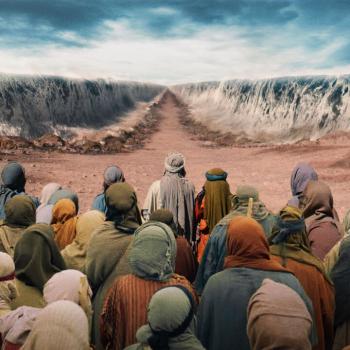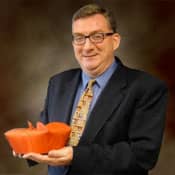For All Saints and All Souls day, I just reread a favorite book: Father Jim Martin's My Life with the Saints. I love Jim's ability to take old historical figures and inject them with freshness, relevance, and accessibility for modern readers. I thought about my own favorite saints and why they interest me. Here they are!
- St. Benedict (480-547). Benedict's monks brought order to Europe during the Dark Ages, preserving scholarship and spreading Christianity. They were among the most significant groups in medieval history. His rule, noted for its balance and flexibility, continues to influence many today.
- St. Bernard of Clairvaux (1090-1153). Founder of the Cistercian monks (a Benedictine offshoot), Bernard was a major Church reformer in the Middle Ages. He composed some of the most beautiful sermons ever written. He was declared a Doctor of the Church in 1830, and is called the last of the Church Fathers.
- St. Francis of Assisi (1182-1226). One of the most compelling figures in Church history, many consider Francis the most Christ-like person that ever lived. In his love for Christ's poor and God's creation, Francis still challenges us to rediscover the Gospel's core values. "Preach always," he said. "Sometimes use words."
- St. Catherine of Siena (1347-1380). The first female Doctor of the Church, Catherine was a mystic who ended a seventy-year Church schism. How many women would tell a pope: "Even if you have not been very faithful in the past, begin now to follow Christ"? (And he listened!)
- St. Thomas More (1478-1535). The patron saint of lawyers, More was truly a Renaissance man: author, scholar, raconteur, theologian, statesman, martyr. Before his death, he told his executioner: "Pray for me, and I for thee, that we may merrily meet in heaven."
- St. Teresa of Avila (1515-1582). Mystic and reformer, Teresa was humorous, feisty, and compassionate. She once yelled at God: "If this is how you treat your friends, no wonder you have so few!" I love her saying: "Let nothing disturb you, let nothing affright you. All things are passing. God never changes. If you have God you will want for nothing. God alone suffices."
- St. Ignatius Loyola (1491-1556). He appears stern and severe, this ex-soldier who founded the Jesuits. Perhaps his greatest contribution is the Spiritual Exercises, a retreat program that brings many closer to God. He challenges us to reach for the Magis ("the more"). My favorite quote from Ignatius is: "Act as if everything depended on you, and pray as if everything depended on God."
- St. Philip Neri (1515-1595). If joy is at the heart of the spiritual life, no saint reminds us of this more than the "Apostle of Joy," who happily served Rome's most abandoned, organized evenings of prayer and music, and founded the Oratorians. "A joyful heart," he said, "is more easily made perfect than a downcast one."
- St. Francis de Sales (1567-1622). "You catch more flies with honey than vinegar," is a quote attributed to this bishop-author-spiritual director. Francis stressed God's love rather than fear of God. His Introduction to the Devout Life pioneered spirituality for laypeople. When many Catholic leaders emphasized a fear-based spirituality, Francis stressed a positive approach.
- St. Vincent De Paul (1576-1660). Voltaire had great hostility toward Catholicism, but he liked Vincent: "There's the saint for me!" For fifty years, Vincent used his practical genius to aid the poor. Some consider him the father of modern social work, but his vision extended the philanthropic. "He has sent me to bring the Good News to the poor" is the motto of his religious community, the Vincentians.
- St. Isaac Jogues (1607-1646). Historian Francis Parkman wasn't crazy about Catholicism, but he admired the Jesuit missionaries in 1600s Canada who "stood serene before the direst shades of death." None did he admire more than Jogues, "one of the purest specimens of Roman Catholicism." Dedicated to evangelizing the Native Peoples, he suffered horrible tortures. After a lengthy captivity, he escaped to France, but insisted on returning, even though it meant certain death.
- St. Louis de Montfort (1673-1716). As religious indifference spread through France, this giant of a man traveled the countryside restoring religious fervor, preaching God as Eternal Wisdom and devotion to Mary. He made enemies inside and outside the Church, but he worked until his death at forty-three. He was no plaster saint. Once after some barroom rowdies disturbed his Mass, he singlehandedly destroyed the tavern with his bare hands. His motto was "God Alone!"
- St. John Vianney (1786-1859). He barely made it through the seminary, but he left a legacy of priestly service unparalleled, countless hours in the confessional, sermons poured from his heart, an incredible love for his parishioners. The patron of parish priests, his legacy wasn't a religious order, scholarship, or influencing the larger culture. It was, quite simply, extreme holiness in his ministry.
- St. John Bosco (1815-1888). Like Francis De Sales, his favorite saint, Don Bosco emphasized love over fear in his work with youth in 19th century Italy. As a young priest he sympathized with them, developing a new approach to youth ministry. The Salesian Order, which he founded in 1858, focused on reason, religion, and kindness. Reaching out to the most disadvantaged and abused, they continue this work today around the world.
- St. Thérèse of Lisieux (1873-1897). This French Carmelite nun, who died at twenty-four, has been called the "greatest saint of modern times." In 1997, she was named a Doctor of the Church. What makes her unique? It has to with her "Little Way": doing small, everyday things with love. Not so easy, many have learned. One man who read her autobiography three times said it made him a better man each time. Her Little Way encourages me to be a better man, husband, and father.
12/2/2022 9:05:39 PM





